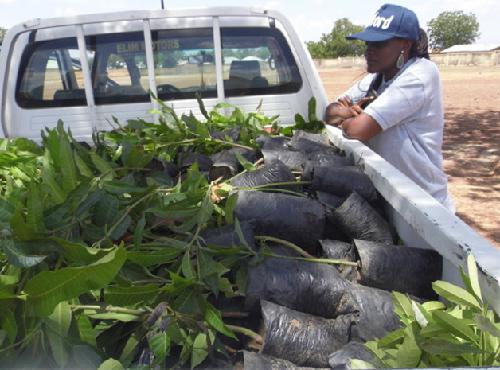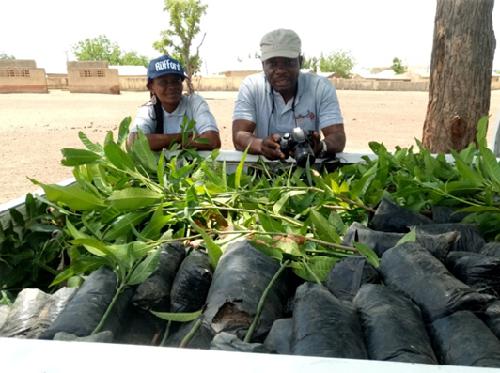Fatima Ramzy James
This project is aimed at decreasing the rate of desertification in the state by planting trees, creating awareness by educating the public with major focus on teenagers and youths, on the causes of desertification, its effect on biodiversity and how to combat it and to make appeals to the government to make laws preventing uncontrolled felling of trees in the state. The first specific objective is to determine the extent of desertification in the state by carrying out tree census, providing information which can be used to make appeals to the state government. The second objective is to set up environmental clubs which will be used as tools for conservation awareness. The third objective is to plant indigenous trees in most affected areas of the state. Planting indigenous trees will ensure that they are fully restored to the habitats and hence slower desertification.

Trees have been known to provide various ecosystem services to man and other biodiversity.

Provision of shelter, nesting sites, food, wind breaks, improvement of air quality and provision of oxygen to mention a few. In Nigeria, especially the North-eastern region, it has been estimated that about 350,000 square meters of land mass is been lost at an alarming rate of 0.6 kilometres a year. With the rapid increase in human population, land use has greatly increased.
Woodlands and forests are been converted into lands for agriculture, grazing, tree felling for fuel wood, construction and rapid urbanization. This has led to the destruction of vegetation structure, loss of soil fertility, exposure of soil to erosion, heavy flooding, wind storm and pollution. The loss of vegetation structure has caused an adverse effect on biodiversity. Gombe state, located in the North-eastern part of Nigeria, is currently experiencing rapid desertification. These are probably due to the incessant felling of trees among other factors.
This project is aimed at decreasing the rate of desertification in the state by planting trees, creating awareness by educating the public with major focus on teenagers and youths, on the causes of desertification, its effect on biodiversity and how to combat it. Also, appeal to the government to make laws preventing uncontrolled felling of trees in the state.
We will first of all determine the extent of desertification in the state by carrying out tree census in the state. We will also establish environmental clubs. Youths will be involved in conservation awareness campaigns; they will be introduced to bird and plant identification techniques. Various seminars and activities will be carried out to educate them on conservation strategies. This will encourage the community members to be aware of changes in their environment and also be conservation conscious.
Tree planting campaigns including the planting of indigenous trees will also be carried out to ensure that indigenous trees are fully restored to the habitats/communities and hence slower desertification.